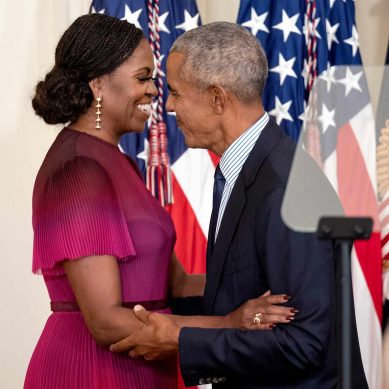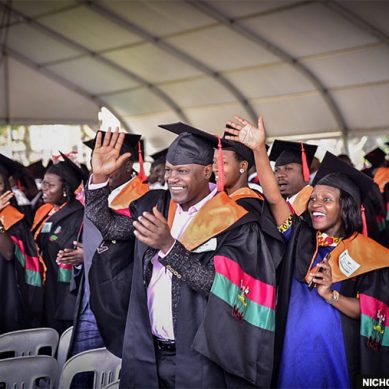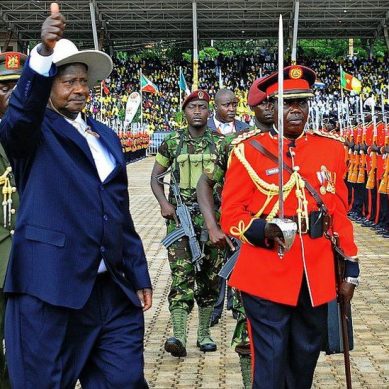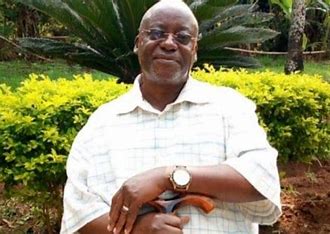Politics of pure science in Uganda: Case of how poisoned academic environment smothers critical thinking
The marketplace of ideas holds that the truth will emerge from the competition of ideas in free, transparent public discourse and concludes that ideas and ideologies will be culled according to their superiority or inferiority and widespread acceptance among the population. The concept is often applied to discussions of patent law as well as freedom of the press and the responsibilities of the media in a liberal democracy.
15 years ago: The world is heavy with burden of pain and suffering but having Barack Obama as president mattered
In Obama, so many Black Americans didn’t just see a politician. We saw, in him, fragments of our collective selves – the hopes of Harlem Renaissance poets, the determination of Civil Rights marchers, the ambition of Black students trapped in deliberately underfunded schools. And we saw the deferred dreams of our elders.
While Uganda holds fast onto traditional knowledge silos, interdisciplinarity is taking root in higher education in the world
Structural knowledge is a concept introduced by one of the world’s interdisciplinary education experts, Dr Allen Repko in 2009. It refers to the level of knowledge students need to get to a point of forming their own ideas and solutions to a given problem.
Knowledge integration revolution: Why is crossdisciplinary teaching, learning necessary?
Uganda’s scientists are part of the global movement of science, which is determined to remove faith from human experience, and which is increasingly immoral and unethical as I emphasised in my article Billgating Science to Conquer God’s Project Nature. This has integrated Uganda in the abominable global corruption, which is like a movement against humanity…
Uganda is a mega-monarchy today with small monarchy-like entities where human rights do not matter
Land grabbing has proved greatly injurious to the environment with long-term dire consequences for humanity not only in Uganda but also in the region and the world. For example Mabira Rain Forest, whose influence on climate in Uganda, the region and the world has been reduced to a miniature by the land grabbing culture and behaviour of the powerful and the powerless empowering themselves by their strong ties to power.
Why I despise disciplining knowledge: It oversimplifies the world by destroying its complexity
Disciplining knowledge stifles the emergence of alternative knowledge production cultures or systems, thereby denying the learning enterprise from cultivating alternative scholarship and alternative analysts, let alone genuine team scientists.
Resetting Uganda: Need for broader minds to dismantle education pigeon holes Ugandans are fed in
It is perhaps Hobbes’ observation and awareness that the logical outcome of egotistical individuals, all deciding how best to survive, would be anarchy, that should spur Ugandans to think and rethink their future in light of what is happening. They might even have to rethink the commitment of their leaders to their need for tranquil minds and peace well in the future.
Integrating conservation, biodiversity and sustainability: The case of Uganda and East Africa
A lack of interdisciplinary, cross-disciplinary, transdisciplinary and non-disciplinary or extra-disciplinary scholars working on solutions-based research has been a barrier to achieving sustainability objectives in the country. Yet without achieving sustainability objectives we are just sojourners of the century.
Wean and win: How can Uganda liberate herself from foreign aid dependency?
Unfortunately, foreign aid is not charity, although when leaders talk to convince the people that foreign aid is good, they submit it as if it is charity. Foreign aid is not charity, and as the CFI has shown, it has many strings attached. It is ethnocentric. And as I have frequently stated no foreigner gives you aid to help you more than he or she helps himself.
Why organisations are opting for catalytic mechanisms to tamp down negative energy
For years I’ve been fascinated by something that Jim Collins labelled “catalytic mechanisms” in a 1999 Harvard Business Review article. The article, titled Turning Goals into Results: The Power of Catalytic Mechanisms, described how to powerfully influence people in organisations to change their behaviour – easily, permanently and nearly effortlessly....














